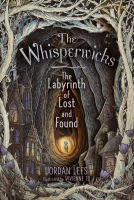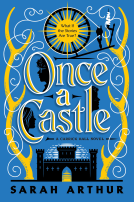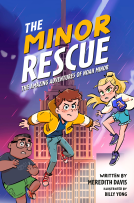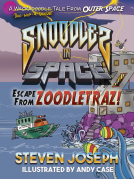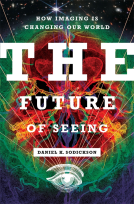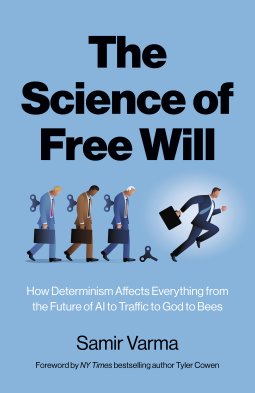
The Science of Free Will
How Determinism Affects Everything from the Future of AI to Traffic to God to Bees
by Samir Varma
This title was previously available on NetGalley and is now archived.
Send NetGalley books directly to your Kindle or Kindle app
1
To read on a Kindle or Kindle app, please add kindle@netgalley.com as an approved email address to receive files in your Amazon account. Click here for step-by-step instructions.
2
Also find your Kindle email address within your Amazon account, and enter it here.
Pub Date Mar 01 2025 | Archive Date Dec 31 2024
Collective Ink Limited | Iff Books
Talking about this book? Use #TheScienceofFreeWill #NetGalley. More hashtag tips!
Description
A Note From the Publisher
However, the unexpected (and scientifically disastrous) cancellation of the Superconducting Supercollider prompted a pivot in my career. Recognizing the changing landscape of particle physics, I founded a futures trading company in 1993, becoming one of the very earliest adopters of chaos theory in the financial realm. This innovative approach was the foundation for a successful Commodity Trading Advisor. Subsequently, in 2001, I ventured into equities trading via VS Asset Management (www.vsasset.com). After 13 years of research, in 2016, VS Asset Management created and is currently successfully trading a unique investment methodology called Risk Timing™.
Beyond the financial world, I co-founded Palm Energy Systems (www.palm.energy) aiming to harness solar energy in spaces once considered unsuitable. My diverse patent portfolio, spanning fields from software to medicine, is a testament to my passion for innovation and exploration. Until December 2022, I was also Chairman and Chief Scientist for Applango Systems, where I developed AI algorithms to make call centers, SaaS and telecommunication companies much more efficient.
I have academic publications in mathematical physics, particle physics, and fluid dynamics. My early work with Mathematica led to groundbreaking publications and introduced me to the ideas of Stephen Wolfram. This exposure, combined with my expertise in areas like computation, Chaos Theory, and economics, and a firm nudge from bestselling author Tyler Cowen inspired me to write "The Science of Free Will."
On a personal note, my journey from academia to finance and entrepreneurship has been driven by a deep curiosity and a desire to understand and harness the complexities of our world. Writing this book is an extension of that journey, and I'm eager to share these insights with a broader audience.
In my spare time I enjoy playing guitar and squash. My back won't let me play golf any more! For computationally irreducible reasons, I have a particular fondness for detective and spy stories, and am obsessed with the music of The Beatles and Pink Floyd.
Advance Praise
I am delighted to see this work come to fruition. Samir Varma breaks down barriers in this fascinating book on determinism. Even if physics leaves no room for free will in theory, you effectively have `Free Will in Practice'—you are part of the causal chain steering your actions in complex, unpredictable ways. I thoroughly enjoyed this book and believe many readers will gain profound insights from it.
Tyler Cowen, New York Times bestselling author of 19 books and Professor of Economics at George Mason University.
An intellectual tour-de-force, this book delves into the timeless debate surrounding free will's existence. Bridging theory and practice, it weaves an exhaustive interdisciplinary study through science, mathematics, computer science, and philosophy. With compelling evidence and insightful caveats, it challenges readers to reconsider the boundaries between determinism and human agency.
Silas Beane, Professor of Physics at the University of Washington, renowned for his work in theoretical nuclear physics and computational science.
Available Editions
| EDITION | Other Format |
| ISBN | 9781803417318 |
| PRICE | CA$25.95 (CAD) |
| PAGES | 248 |
Available on NetGalley
Average rating from 8 members
Readers who liked this book also liked:
Sheinelle Jones
Biographies & Memoirs, Parenting, Families, Relationships, Self-Help
Carine Laforest;
Children's Fiction
We Are Bookish
Historical Fiction, Literary Fiction, Multicultural Interest
Fumiyo Kouno
Arts & Photography, Comics, Graphic Novels, Manga, Reference
